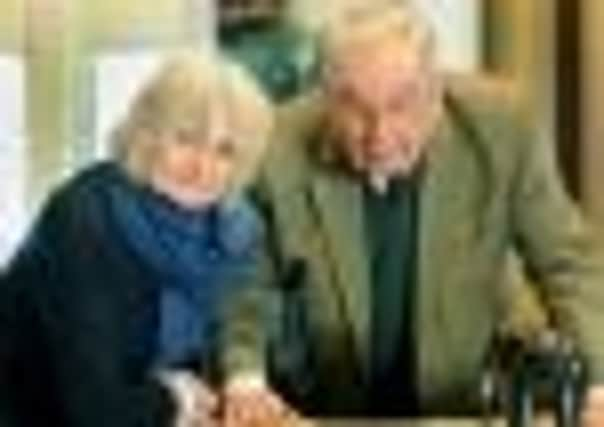Tales of wartime courage revealed


Now Yorkshire survivors of a wartime exodus of half a million people from Burma have seen their stories told in a newly published book Exodus Burma – The British Escape Through the Jungles of Death 1942 by Felicity Goodall.
John Bostock from Ripon and Di Clarke from Knaresborough are survivors of an evacuation in 1942 in which thousands died and whole families were wiped out as they attempted a hazardous trek to India to escape the merciless Japanese.
Advertisement
Hide AdAdvertisement
Hide AdThis year marks the 70th anniversary of their escape from a colonial outpost at one time known as a paradise nicknamed the Golden Land.
After an airstrip was strafed by Japanese fire, thousands of unprepared, unequipped civilians set off on foot on a 300-mile journey through dense jungle, mountain passes and swollen rivers, many women wearing high-heeled shoes, the old in slippers, some carrying suitcases. Many died by the wayside or in temporary refugee camps when they could go no further. These included the elderly, pregnant women, children and exhausted soldiers.
Even six months later jungle tracks were lined with the bones of those who had died trying to escape.
Mr Bostock’s family escaped the worst of this little-known episode of the war.
Advertisement
Hide AdAdvertisement
Hide AdThey left early thanks to the foresight of his father, Geoff, manager of the Bombay Burma Trading Corporation, who had meticulously and secretly planned an escape route for families working for the company after the bombing of Pearl Harbor and invasion of Singapore in February 1942.
John, now 76 and living near Ripon, was almost seven on February 23, 1942 when he remembers being woken in the early hours at the family home in Maymyo and told they were going on a trek. “As far as I was concerned the whole thing was an adventure”, he said.
“There are certain things I remember. I was a big lad for my age and was carried by coolies on a seat between two poles. I don’t remember how far we got but I do recall being put down by them and them running off into the jungle. That was frightening. Being contacted for this book has brought back memories which are unbelievable.
“I have still got my father’s files and photographs and maps of Burma and all my mother’s letters.”
Advertisement
Hide AdAdvertisement
Hide AdFor some though, the horror of what they had witnessed as the battle-hardened troops of the Japanese army overran Burma with frightening speed was too terrifying to commit to print.
They had spent nights when sleeping among corpses was the least of their worries and they had no wish to revisit the experience.
John’s father, Geoff, who had years of experience of living in Burma and of life in the jungle, led the procession of 56 elephants, 22 women and 15 children through the mountains to safety in the first of two superbly organised caravans.
Di Clarke’s uncle, Jim ‘Elephant Bill’ Williams, had worked for the Bombay Burma Trading Corporation for 20 years and his expertise with elephants and knowledge of the jungle and water supplies made him an invaluable resource on the same trip.
Advertisement
Hide AdAdvertisement
Hide AdDi, now living in Scriven near Knaresborough, was five in 1942 and had been living in Burma with her aunt and uncle.
After the bombing of Pearl Harbor, she and her brother were flown to safety on a flying boat by her father who had been working in India.
“My cousin was on the trek along the Chindwin river and across to Calcutta with my aunt and uncle and, even though they got out relatively early, he remembered seeing lots of dead bodies on the way”, she recalls.
“The story of the exodus from Burma is largely untold and this book is superb. The past feels so immediate because of the number of personal testimonies that Felicity has used from diaries and letters”.
Those adhering to instructions to ‘stay put’ until the very last minute were less fortunate, facing soaring temperatures, the monsoon and the merciless Japanese.